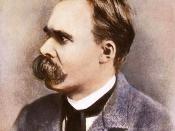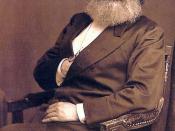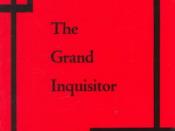As the power of the Church and religious faith gradually declined, many thinkers since the Enlightenment Age have been writing against religious institutions such as the Church. According to many philosophers and thinkers, powerful institutions do no good, but instead much harm to their defenseless subjects. Support for this can be found in works of Voltaire, Karl Marx, Friedrich Nietzsche, and Dostoyevsky.
Voltaire in Candide, satirizes organized religion by means of a series of corrupt, hypocritical religious leaders who appear throughout the novel. Candide encounters the daughter of a Pope, who as a Catholic priest should have been celibate. He also meets an Inquisitor who has a mistress; and a Franciscan friar who despite the vow of poverty is a jewel thief. Religious leaders in the novel also carry out inhumane campaigns of religious oppression against those who disagree with them on even the smallest of theological matters.
According to Marx, religion is one of those social institutions which are dependent upon the material and economic realities in a given society.
It has no independent history but is instead the creature of productive forces. As Marx wrote, "The religious world is but the reflex of the real world." Religion is an _expression of material realities and economic injustice. Thus, problems in religion are ultimately problems in society. Religion is not the disease, but merely a symptom. It is used by oppressors to make people feel better about the distress they experience due to being poor and exploited. This is the origin of his comment that religion is the "opium of the masses"
Nietzsche's powerful opinions against religion, deploy a mixture of Enlightenment-inspired criticism to attack the life-negating aspects of modern culture. Nietzsche criticizes many of the institutions and values of modern societies as oppressing bodily energies and creativity, while...


